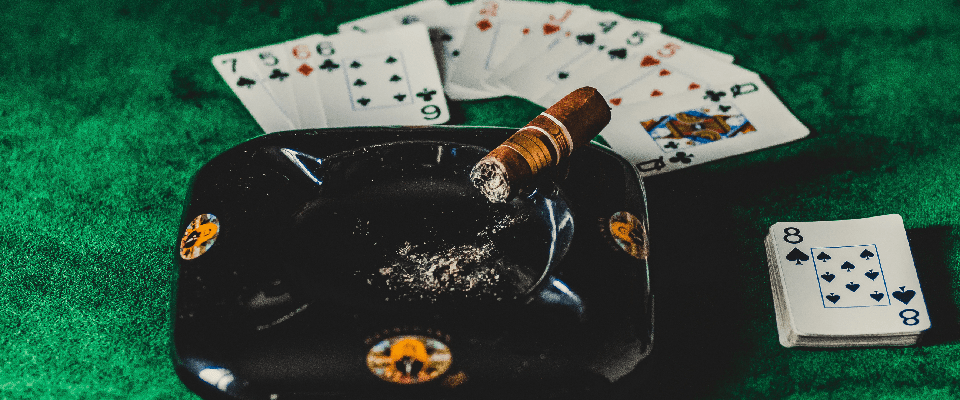5 Simple Poker Strategy Pointers for Novices
Poker is an easy game to learn. The fundamentals of poker can be picked up quickly, as can knowing which of the few hands is the best. The simple part is that. It can take a lifetime to truly perfect your playing style and make poker a reliable source of income.
It's important for beginning players to strike a balance between the excitement and fun of playing poker and the significant losses you can quickly incur if you don't know what you're doing. How do you become the upcoming poker superstar?
First poker tip: In poker, aggression pays off
Poker is a game where betting is necessary in order to win, and betting a lot is the only way to win a lot. Poker is a timed, targeted aggression game. You'll also learn when to play more aggressively at the table as you become more adept at the game's fundamentals.
Simply put, too many new players are overly cautious. When they should bet or raise, they will check and call accordingly. When you have a strong opening hand, such as a pair of high cards or an A-K or A-Q hand, you should play more aggressively than you might anticipate. These are excellent cards to start with when getting a raise.
In a game with a full table, you'll want to make sure you push players with weaker holdings out or force them to pay up to stay in. The worst scenario is underplaying a pair of Kings only to lose to someone who checked with 8-4 before the flop and miraculously caught a straight.
Make them pay to view those cards, and remove as many players from the pot as you can. Your base odds of winning when six people are in the pot are only 17%. With just two players, that increases to 50%.
The worst part of cautious play is that it makes you appear less strong to the other players at the table. Stronger players who know you'll fold under pressure will soon start pushing you around if you infrequently bet or raise. When you do place a large bet, the other players will recognize that you have a strong hand right away and will all quickly fold, lowering the amount you win.
Do not forget that aggressive play creates large pots. Your best course of action is to milk the table for all the money you can if you have a winning hand. Poker is highlighted in this scenario at its most exciting and entertaining.
Poker Hint #2:But you also need to have patience.
Being aggressive doesn't mean betting all of your chips on lousy hands in the hopes of getting lucky with the river. That is a surefire way to quickly reduce the number of chips in your stack.
Folding far more hands than you play is one of the most fundamental smart poker strategies. Sitting at the table while everyone else is playing sounds like an awfully boring way to spend an evening to many players.
Here are five practical suggestions to increase your patience:
1.Keep in mind that most dealt hands will result in losses due to the law of averages.
2.Your best course of action is to fold as soon as possible if you don't have a strong hand.
3.Take advantage of the time to observe and analyze the other players' strategies at the table.
4.You can concentrate more intently on everyone else when you aren't preoccupied with your own hand.
5.When the poker odds are in your favor, be patiently waiting for that opportunity to attack the pot.
Poker Tip #3: Pay Attention to Your Rivals
An old poker adage goes, "Play the player, not your cards." That's just a fancy way of saying that poker is situation-based. Usually, the quality of your hand depends solely on what the other person is holding. Although K-K is a strong hand, 82% of the time your kings lose if another player has A-A. Think about it the other way around: While the other player is on J-J, you are holding A-10. It comes up 10-8-6 on the flop. Your two 10s suddenly have a 20% chance of winning.
Think about the opposite scenario: you are holding A-10 while the other player is on J-J. It comes up 10-8-6 on the flop. Your two 10s suddenly have a 20% chance of winning.
How do you know what the other guy has? By watching other players and learning how they play.
Imagine the 10-8-6 flop situation above and you have A-A.
What do you do?
Have you seen the guy across from you slow-playing big hands before?
You might play more cautiously with your Aces.
Have you seen him make big bluffs to try to grab pots when “scary” cards are on the board?
You might call his bets, or even raise, knowing that 10-10 is a rare hand.
Recognize other players' cues and look out for "tells" to help you. Tells include a person's playing style in addition to their tense behaviors like fidgeting with chips or rings that you see in movies. For instance, if someone has been calling all night and then suddenly offers a huge raise, they probably have the upper hand.
Tip #4: Play for the Long Term in Poker
You're going to waste some time as a new player. You'll go all-in with a pair of Aces at some point, but you'll lose to someone else with a pair of 9s who wins with a third 9 on the river.
Do not let these losses, also referred to as "bad beats," demoralize you. Although the odds won't always be in your favor, over the long haul, those Aces will outperform the 9s.
Poker winning strategy development is a lengthy process that calls for playing countless numbers of hands in a live game environment.
It will take many more lessons than that to become an expert, but it's the only way to understand even the fundamentals firmly.
Use the first three suggestions in this poker strategy guide as you hone your skills. Play with caution, use force when necessary, and treat the table like your favorite movie.
By using this strategy, you can control your play and avoid going "on tilt." Try not to make irrational bets to make up for losses.
Set a budget and stick to it for each session as well as over the long run.
Poker Tip #5: Improve Your Game
Poker isn't just a game you get good at at the table, though you will learn a lot from both wins and losses.
Poker isn't just a game you get good at at the table, though you will learn a lot from both wins and losses. Reading blogs and books about poker strategy can teach you even more.
Online gaming is a fantastic way to advance your knowledge and abilities. Just be certain to select the appropriate table. The majority of players at "play money" tables are likely to be novices who aren't taking the game seriously.So, stick to $5 or lower buy-in low-stakes tournaments.
As you go, take notes to help you improve your tactics as you get better and better.









